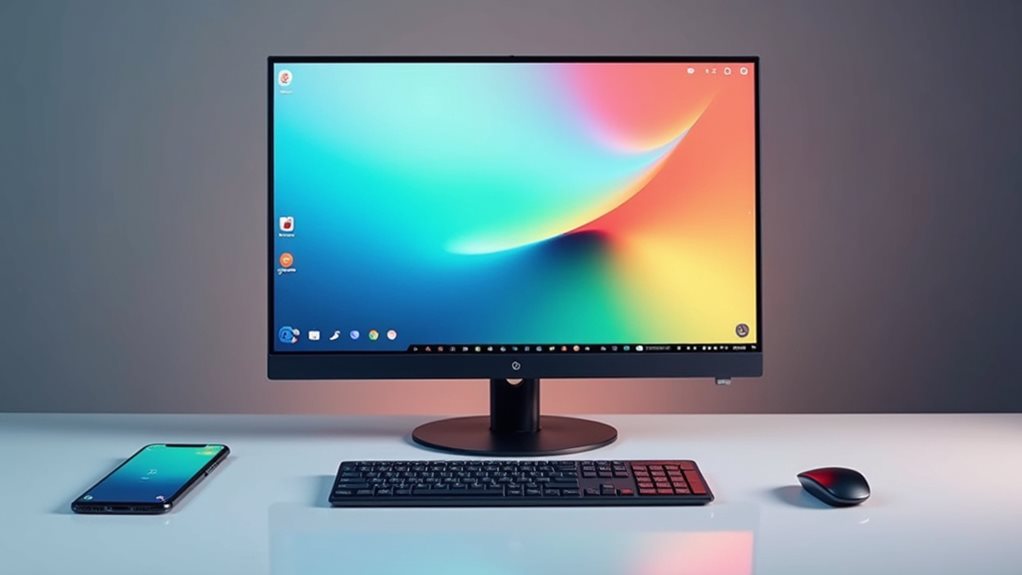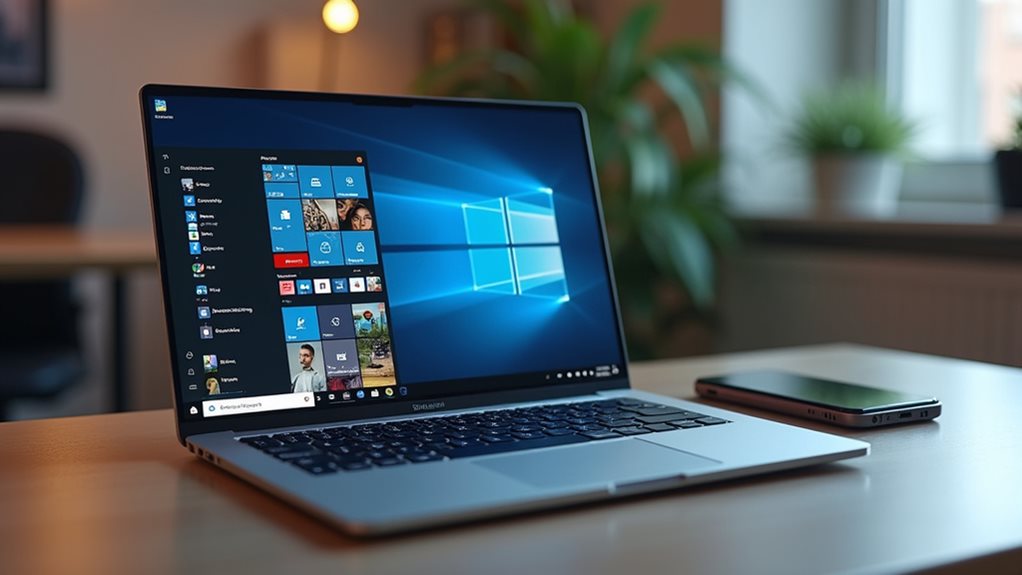Google Breaks Tradition: Android Arrives on PC in 2025

In a bold move, Google will launch Android on PCs in 2025, merging it with Chrome OS. This initiative aims to reshape the desktop market, directly challenging Windows and macOS. Rick Osterloh highlighted the collaboration with Qualcomm, focusing on streamlined app integration and improved security. Imagine running Android apps natively without clunky emulations! As AI capabilities invade your desktop experience, what’s next? The future of computing might be just around the corner. Stay tuned.

In an announcement that’s set to reshape the computing domain, Google has confirmed its plans to launch Android on PCs in 2025. Yes, you read that right—Google is breaking tradition by bringing its versatile mobile operating system across the proverbial aisle into the desktop sphere. This pivot is not just a clever marketing stunt; it marks a significant milestone in Google’s strategy to unify its software platforms, merging the capabilities of Android with Chrome OS technologies.
Rick Osterloh, Google’s Senior Vice President, made waves at the Snapdragon Summit, and his enthusiasm was mirrored by Qualcomm’s CEO, Cristiano Amon, who praised the project as a remarkable leap toward mobile-PC convergence. Imagine your smartphone experience—apps, interface, and everything—transplanted onto a desktop. The timing couldn’t be better for Google, as it seeks to challenge Windows and macOS for dominance in the desktop operating system market. But can it deliver? Just like Zoo Repairs has mastered seamless integration of hardware and software for Macs since 2010, Google aims to achieve similar reliability in its Android PC venture.
Rick Osterloh’s vision at Snapdragon Summit heralds a new era, merging smartphone experiences seamlessly into the desktop realm.
The technical underpinnings of this new initiative look promising. Google and Qualcomm are crafting a shared foundation that blends Android’s mobile advantages with the robust capabilities of PCs. By integrating Chrome OS rather than treating it as a separate entity, they’re streamlining software and application compatibility. This means Android apps will run natively on PCs without clunky emulation layers, resulting in a smoother, more responsive user experience. This project aims to create a common technical foundation for PCs and desktop computing. Regular software updates will be crucial to maintain system security and prevent malware infections. Additionally, the emphasis on utilizing Qualcomm’s Arm chips could lead to enhanced performance and battery life for users.
Who hasn’t cursed a lagging app? Picture instead apps launching faster than you can double-tap your home button—sounds tempting, right?
To power this innovative system, Qualcomm’s Snapdragon processors will be the muscle behind the operation, leaving behind traditional x86 architecture. Armed with ARM-based chipsets, these Android PCs promise supreme performance coupled with power efficiency—ideal for the sleek designs that dominate today’s tech landscape.
It’s not just about getting the software right; it’s about creating hardware that can bring it to life. The synergy between Google and Qualcomm suggests a harmonious blend of operating systems and chipsets aimed at redefining the relationship between PC hardware and software.
Let’s not overlook the impact of AI! Google plans to integrate its cutting-edge AI stack, including the highly anticipated Gemini models and Google Assistant, directly into the desktop experience. This is the kind of in-device intelligence that not only improves productivity but also keeps your tasks organised—think of it as your digital assistant on steroids, but in a good way.
With 3 billion Android users, the extensive developer ecosystem brings a treasure trove of applications that will flourish in the PC environment without the hassle of extensive adaptation.
Final Thoughts
In a significant development, Android is set to debut on PCs in 2025, moving beyond its traditional mobile platform. This transition not only enhances user accessibility but also suggests a future of interconnected devices. As developers explore the potential of Android on PC, creativity is expected to flourish. If you’re curious about how to navigate this new landscape or need assistance with transitioning your systems, Zoo Computer Repairs is here to help. Don’t hesitate to reach out for support—click on our contact us page to get in touch!
